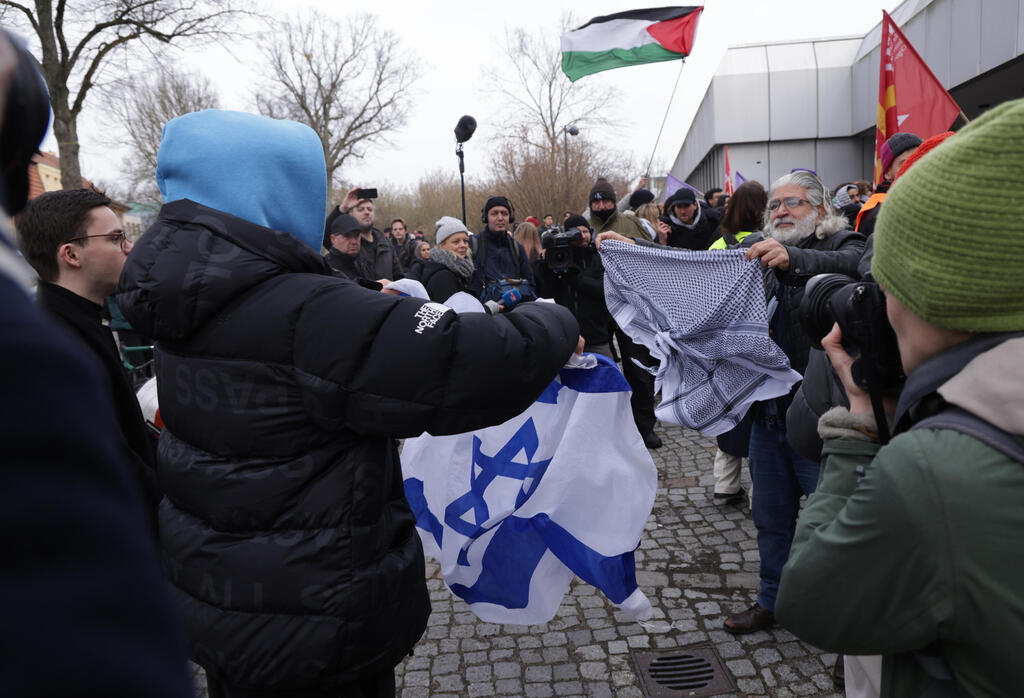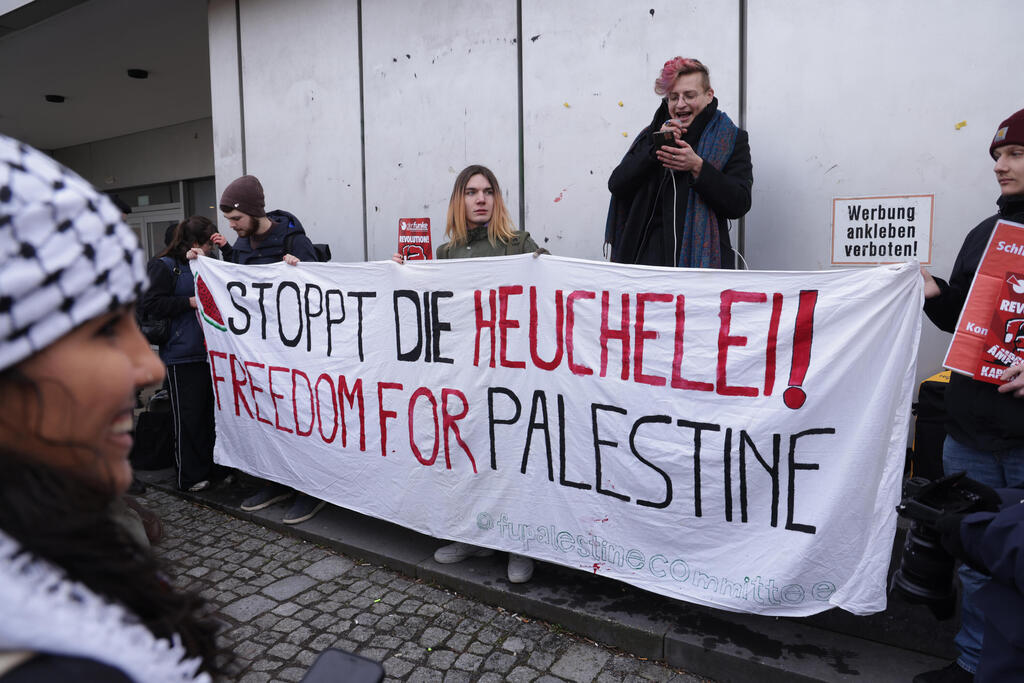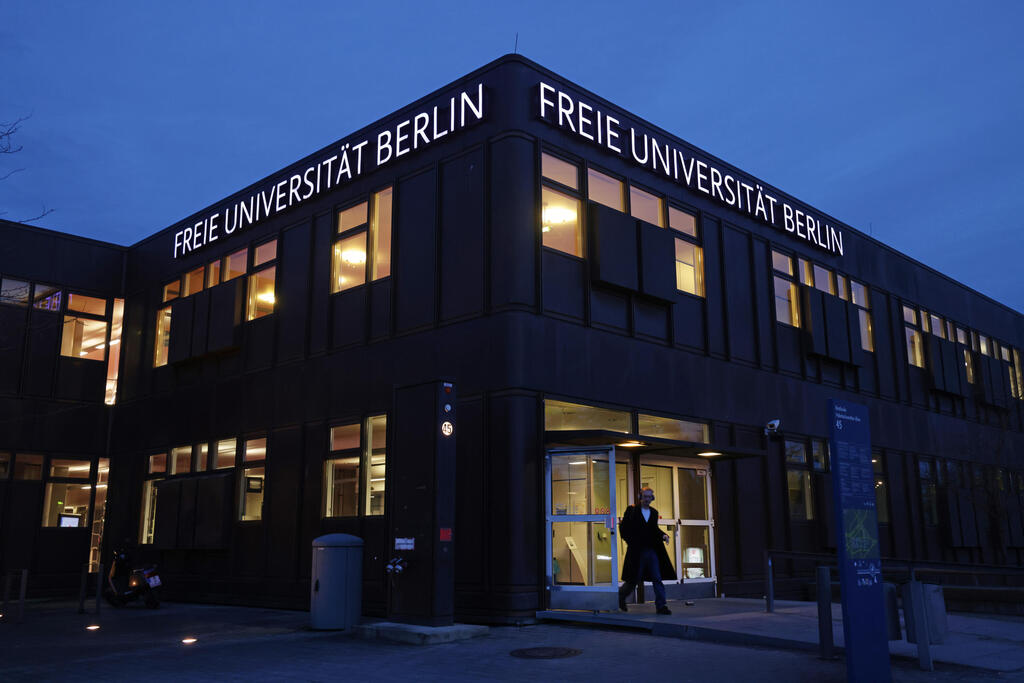Getting your Trinity Audio player ready...
Beginning on October 7, Berlin's Freie Universitat (Free University), along with several other locations in the city, found itself at the heart of an escalating wave of antisemitic hostility, driven by pro-Palestinian rabble-rousers and their German sympathizers. This has taken on many forms, including violent protests, calls for the extinction of the Jewish state, and even the commandeering of university buildings as a show of support for Gaza and Hamas. The perceived nonchalance of both the German public and university leadership toward the growing fear among Jews has contributed to a significant decline in Jewish student attendance.
Read more:
A recent weekend incident underlined the sobering truth that paranoia can sometimes be rooted in reality. Lahav Shapira, a 30-year-old university student, the son of an Israeli mother and the grandson of Amitzur Shapira – a Munich Olympics victim and athletics coach – was physically attacked by a fellow student. The attacker, an Arab German citizen, was well-aware of Shapira's advocacy for Israel. The assault left Shapira with a broken nose and a damaged bone beneath his eye.
Lahav Shapira is no stranger to violence in Germany; this marks the second time he has been assaulted. The initial incident, which took place more than a decade ago, occurred in Laucha, a town his mother had relocated to. The perpetrators were local neo-Nazis. At the time, questions arose about why Jews would choose to reside in the homeland of the Nazis. Later, the inquiry shifted to why Jews were residing in Neukölln and other neighborhoods affected by Muslim migration.
However, the latest assault on Shapira took place in Mitte, arguably one of the most progressive and welcoming neighborhoods in all of Berlin, if not all of Germany. The motivation behind the assault on Shapira wasn't geographical, it was philosophical: Shapira is Jewish, he supports Israel and, in the attacker's perspective, this warranted a physical assault. The assault occurred while Shapira was at a bar in Berlin, and his attacker was a Muslim Arab.
Responses to Shapira's assault have bordered on the surreal. The university's official statement expressed its opposition to any event involving incitement or violence, but fell short in its delivery, omitting any mention of racism or antisemitism. The institution appears to avoid confronting the aggressive pro-Palestinian sentiment among its student body, an attitude it has maintained since October 7.
The university conveyed that, based on legislation enacted several years ago, it is unable to heed the calls from Jewish leaders and the wider public for the expulsion of the assailant. Responding to this, Berlin's Mayor Kai Wegner, visibly appalled by the attack, retorted: "If this is the law, we have no choice but to change the law." Subsequently, the university amended its announcement to include a reference to "antisemitism."
Josef Schuster, president of the Central Council of Jews in Germany, directed an appeal to the universities, insisting that "they must create a safe environment for Jewish students." He further emphasized that it is unacceptable for universities to evolve into a 'no-go zone' for Jews, an implication that these areas could become 'off-limits to Jews' or 'free of Jews.'
The environment at German universities has been perilous for Jewish students for some time now. Anti-Israel sentiment is pervasive in academia, and a substantial number of pro-Palestinian students are involved in spreading antisemitic propaganda. However, following the disruption of lectures by pro-Palestinian demonstrators, Gunter Ziegler, the university president, asserted that "both sides need to refrain from provocations." The provocations from the pro-Palestinian side were evident. I queried a university professor about the provocative actions of the Jewish students.
His response was poignant: "They don't need to provoke, their mere existence is a provocation in itself."
From all indicators related to the attack, there were no exchanges of differing opinions. A single side merely disagreed with the views of the other, resulting in a brutal assault.
A Jewish professor from Freie Universitat shared his perspective on the recent developments. He described the weekend's events as "the most serious collaboration between the extreme left in the university and Muslim students," reinforcing the fact that he and his colleagues also feel threatened on campus.
He recounted that chilling incidents had taken place where German students chanted "Free Palestine from German guilt," and that images of Lahav Shapira were widely circulated, portraying him as an extreme right-wing individual for his support of Israel. The narrative being promoted is that anyone who supports Israel is an extreme right-winger who merits an attack.
"The German left has legitimized violence against Israelis and Jews," the professor said, adding: "The Muslims are merely putting these theories into practice."




